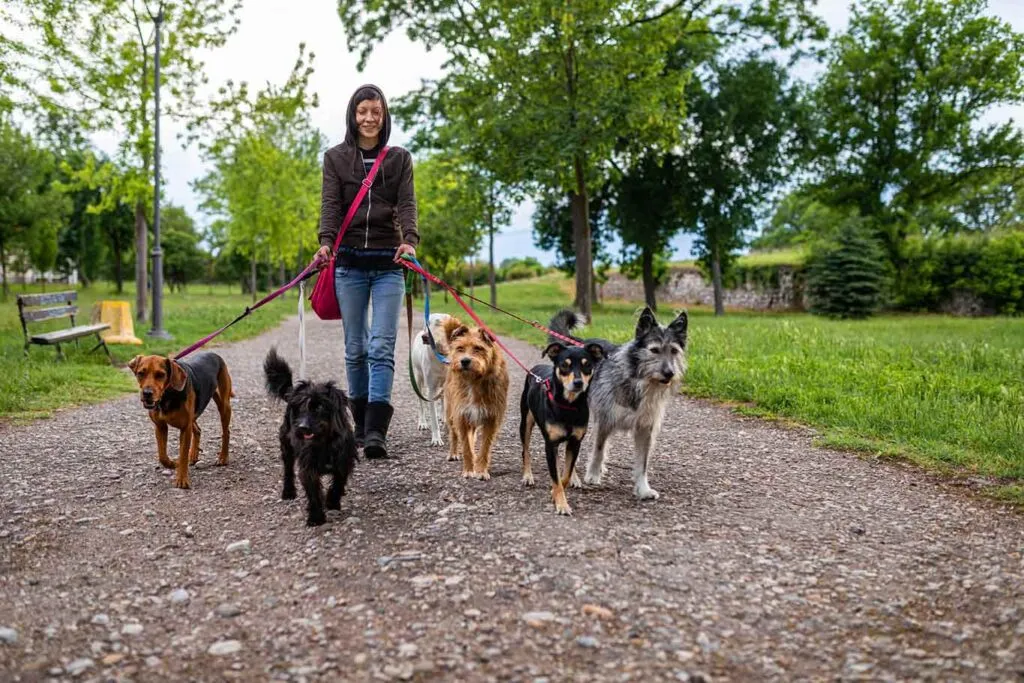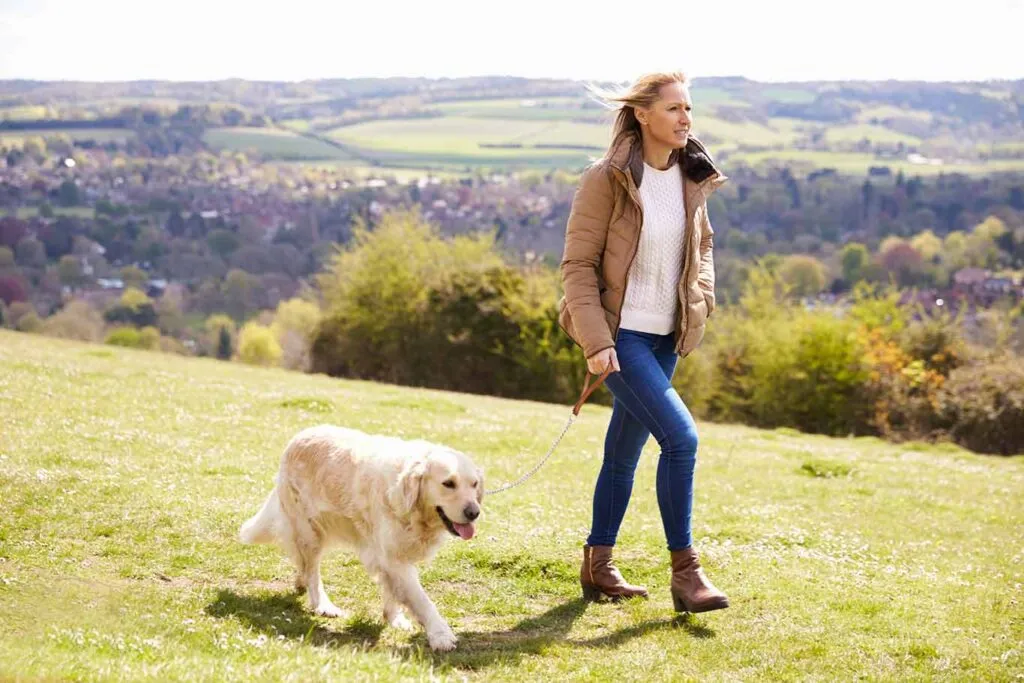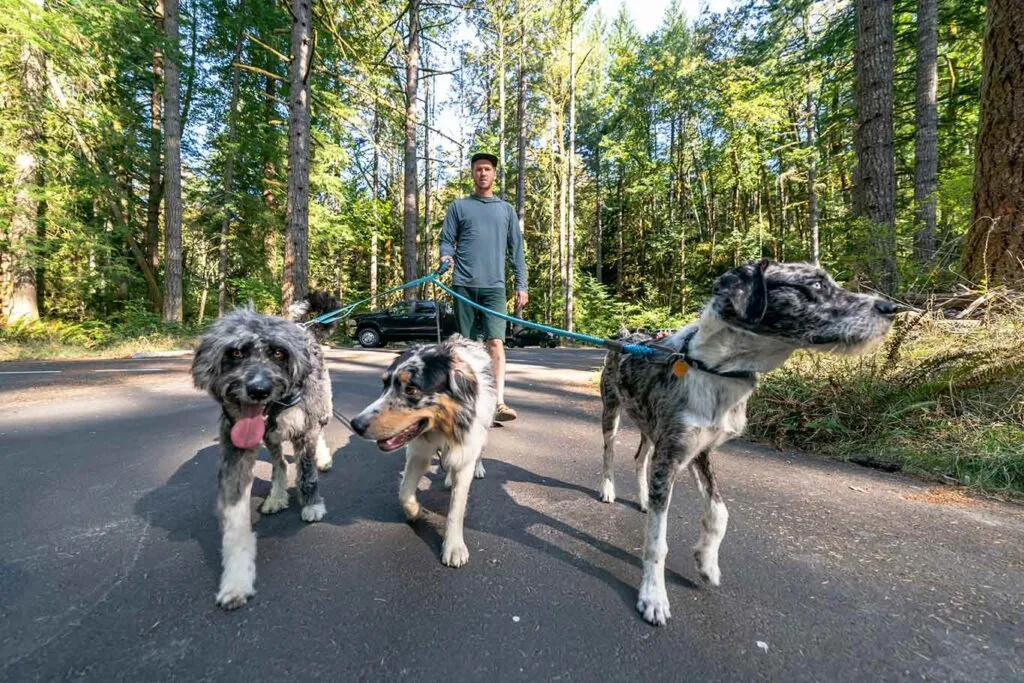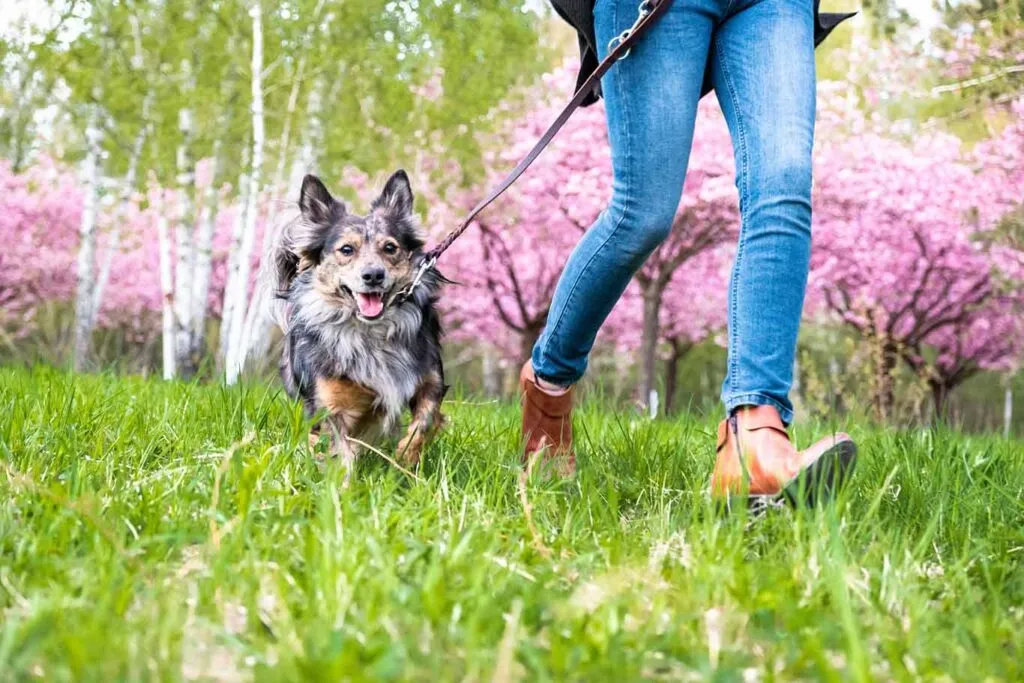Embarking on a career as a professional dog walker in the UK is a rewarding venture, blending a love for animals with a dynamic outdoor lifestyle. However, it’s far more than just taking dogs for a stroll. Aspiring and current dog walkers must navigate a comprehensive landscape of legal responsibilities, regulations, and best practices to ensure the safety and well-being of the dogs under their care, the public, and the environment. Understanding these essential Dog Walker Requirements Uk is fundamental for establishing a reputable, responsible, and successful business. This guide delves into the crucial aspects, from legal obligations and regional variations to licensing, qualifications, insurance, and ethical considerations, ensuring you are fully equipped to meet the standards of this vital profession. If you’re considering the broader scope of running a pet care service, exploring the pros and cons of dog walking business can offer valuable insights into the industry’s dynamics and challenges.
Legal Responsibilities for Dog Walkers in the UK
Professional dog walkers in the UK operate under a significant umbrella of legal obligations designed to safeguard both the animals entrusted to them and the wider community. Compliance with these laws is not merely a recommendation but a mandatory aspect of running a legitimate dog walking service. Failure to adhere can lead to severe penalties, including substantial fines or even imprisonment.
 Professional dog walker managing multiple dogs on leashes in a UK park, highlighting legal responsibilities for dog walkers in the UK.
Professional dog walker managing multiple dogs on leashes in a UK park, highlighting legal responsibilities for dog walkers in the UK.
Control of Dogs Act 1992
The Control of Dogs Act 1992 places a clear responsibility on anyone in charge of a dog in a public place to keep it under control. For dog walkers, this means having the capability to recall dogs immediately and prevent them from causing nuisance or harm to people, other animals, or property. It necessitates constant awareness of the surroundings, anticipating potential conflicts, and acting proactively to avoid them. This foundational piece of legislation underscores the importance of effective training and responsible handling.
Dangerous Dogs Act 1991
Addressing the serious issue of dangerous dogs and unprovoked attacks, the Dangerous Dogs Act 1991 prohibits specific breeds and imposes stringent regulations on the ownership and management of certain dogs. Dog walkers must be fully aware of these restrictions, especially when taking on new clients, to ensure they do not inadvertently handle a prohibited breed or a dog that falls under enhanced control orders. Understanding this Act is critical to avoiding severe legal repercussions.
Dog Fouling Legislation
Cleaning up after dogs is a universal requirement, and UK law specifically addresses dog fouling. The Clean Neighbourhoods and Environment Act 2005 grants local authorities the power to issue fixed penalty notices to individuals who fail to remove dog waste. Responsible dog walkers consistently carry sufficient waste bags and dispose of them correctly in designated bins, demonstrating professionalism and respect for public spaces.
Animal Welfare Act 2006
The Animal Welfare Act 2006 is a cornerstone of animal protection in the UK, outlining the five welfare needs for all animals: a suitable environment, a suitable diet, the ability to express normal behaviour, housing with or apart from other animals, and protection from pain, suffering, injury, and disease. As a dog walker, you are responsible for ensuring these needs are met for every dog in your care. This includes providing adequate water, avoiding over-exertion, protecting them from extreme weather, and ensuring they are walked in a safe manner suitable for their individual needs.
Regional Variations in Dog Walking Laws
While overarching UK laws apply, it’s vital for dog walkers to recognise that specific regulations can vary significantly across England, Scotland, Wales, and Northern Ireland. Staying informed about these regional nuances is an essential part of your dog walker requirements UK.
- England: The Clean Neighbourhoods and Environment Act 2005 is particularly relevant, allowing local councils to implement Dog Control Orders (DCOs) or Public Spaces Protection Orders (PSPOs). These orders can dictate areas where dogs must be on a lead, are excluded from, or where the number of dogs a person can walk is limited.
- Scotland: In addition to general UK laws, dog walkers in Scotland should be aware of the Dogs (Protection of Livestock) Act 1953, which holds owners (and by extension, walkers) responsible for preventing dogs from “worrying” (chasing or attacking) livestock.
- Wales: Wales has introduced specific regulations, such as the Animal Welfare (Electronic Collars) (Wales) Regulations 2010, which prohibit the use of electronic collars on dogs. This is a crucial consideration for dog walkers operating in Wales.
- Northern Ireland: The Dogs (Northern Ireland) Order 1983 includes provisions for licensing, control of specific breeds, and ensuring dogs are kept under control in public areas, similar to, but distinct from, legislation in other UK regions.
Key Regulations for Dog Walkers in 2024
Beyond the core legislation, several practical regulations define daily operations for dog walkers, ensuring safety and compliance. These are critical components of the practical dog walker requirements UK.
 Dog on a lead walking through a public park, illustrating key regulations for dog walkers in the UK in 2024.
Dog on a lead walking through a public park, illustrating key regulations for dog walkers in the UK in 2024.
Wearing a Collar and Identification Tag
The Control of Dogs Order 1992 legally mandates that any dog in a public place must wear a collar with an identification tag. This tag must display the owner’s name and address. While the walker is not the owner, ensuring the dogs in their care comply with this is paramount for responsible practice and for reuniting a lost dog with its owner.
Off-Lead Walking Guidelines
While many open spaces permit dogs to be off the lead, the primary responsibility remains with the dog walker to maintain full control. This means dogs must be reliably trained to respond to voice commands, ensuring they do not pose a threat or nuisance to other people, animals, or wildlife. Dog walkers must assess each dog’s recall ability and temperament before allowing them off-lead, and always adhere to local signage regarding lead requirements.
Safe Transportation of Dogs
Transporting clients’ dogs requires careful attention to safety and legal requirements. Dogs must be secured safely within the vehicle to prevent injury to themselves or occupants, and to avoid distracting the driver. This often involves using crates, harnesses, or safety belts. It is also illegal to leave dogs unattended in vehicles, especially in extreme weather conditions, due to the risk of heatstroke or hypothermia. As part of managing your pet care business, you might also consider related services like a dog sitting business, which has its own set of transportation and care considerations.
Do You Need a License to Walk Dogs in the UK?
As of 2024, there is no single national license specifically required to operate as a dog walker across the entire UK. However, this doesn’t mean you can operate without any local considerations. Many local councils have introduced their own licensing or registration schemes, especially if you are offering professional pet care services. These local requirements aim to ensure the safety and welfare of animals and the public. It is crucial to check with your specific local council to understand any local dog walker requirements UK regarding licensing, Public Space Protection Orders (PSPOs), or other regulatory frameworks that may apply to your area of operation. These can include limits on the number of dogs walked simultaneously or restrictions on certain public spaces.
Qualifications and Training for UK Dog Walkers
While there’s no legal mandate for specific qualifications to become a dog walker in the UK, pursuing relevant training and certifications is highly recommended. Not only does it enhance your expertise and professionalism, but it also demonstrates a commitment to responsible pet care, building trust with clients and meeting industry standards.
Valuable qualifications for dog walkers include:
- Canine First Aid Courses: Essential for responding effectively to emergencies such as injuries, heatstroke, or poisoning during a walk. These courses equip you with vital skills to stabilise a dog until veterinary help can be sought.
- Professional Dog Walker Courses: Comprehensive programmes covering dog behaviour, pack management, practical handling techniques, business skills, and relevant legislation. These courses often provide a strong foundation for managing diverse dog personalities and group dynamics.
- Dog Behaviour and Training Courses: A deeper understanding of canine psychology, communication, and training methods is invaluable for effective control, problem-solving, and ensuring positive interactions between dogs and their environment.
Investing in these areas not only makes you a more competent walker but also reinforces your professional credibility in the competitive pet care market.
Is Insurance a Requirement for Professional Dog Walkers in the UK?
While not a direct legal requirement, obtaining comprehensive insurance is unequivocally one of the most critical dog walker requirements UK for any professional in the industry. Operating without appropriate insurance leaves you vulnerable to significant financial and legal risks.
- Public Liability Insurance: This is paramount. It provides coverage in the event that a dog in your care causes injury to a third party (e.g., another person or animal) or damage to their property. Given the unpredictable nature of animals, this protection is indispensable.
- Care, Custody, and Control Insurance: This specialised coverage protects you against veterinary expenses should a dog in your care become ill, injured, lost, or, in the worst-case scenario, die while under your supervision.
- Key Cover: Many dog walkers hold keys to clients’ homes. Key cover can protect against the cost of replacing keys and changing locks if they are lost or stolen.
Having robust insurance demonstrates professionalism, provides peace of mind for both you and your clients, and safeguards your business against unforeseen incidents.
Best Practices and Ethical Dog Walking
Beyond legal compliance, adhering to best practices and ethical guidelines is crucial for maintaining a successful and reputable dog walking business. These practices contribute to positive community relations and reinforce your commitment to animal welfare.
 Dog walker responsibly picking up dog waste in a UK park, demonstrating best practices for professional dog walkers and adherence to dog fouling laws.
Dog walker responsibly picking up dog waste in a UK park, demonstrating best practices for professional dog walkers and adherence to dog fouling laws.
Environmental Responsibility
Dog walkers have a significant impact on local environments.
- Stay on Designated Paths: Keep dogs on established trails to prevent disturbance to wildlife and damage to fragile habitats.
- Pick Up After Your Dog: Always carry enough waste bags and dispose of them properly. Dog waste can introduce harmful bacteria and nutrients, impacting local ecosystems.
- Avoid Wildlife Disturbance: Even leashed dogs can stress wildlife. Maintain a respectful distance from nesting sites and areas where wildlife may be present.
- Be Mindful of Livestock: Uncontrolled dogs can cause significant harm to livestock. Always keep dogs on a lead near fields with animals.
Public Etiquette and Safety
Professionalism extends to how you and the dogs you walk interact with the public.
- Leash Control: Keep dogs on a leash in busy public areas, near roads, playgrounds, and crowded spaces to prevent accidents and ensure everyone’s safety.
- Friendly Behaviour: Ensure dogs are well-socialised and trained to be friendly and calm around people.
- Ask Permission: Always ask before allowing a dog to approach someone. Not everyone is comfortable around dogs, and some may have allergies or fears.
- Avoid Jumping: Train dogs not to jump on people, as this can be intimidating or dangerous, especially for children or the elderly.
- Respect Personal Space: Teach dogs to respect others’ boundaries, preventing them from invading personal space without consent.
- Be Mindful of Children: Supervise interactions between dogs and children carefully, as some children may be scared of dogs.
- Minimize Group Walks: While efficient, large group walks can increase the risk of disease transmission and make individual control challenging. Ensure all dogs in a group are compatible and well-behaved.
These practices not only reflect positively on your business but also help foster a positive perception of dog walkers within the community. For broader business insights, researching typical dog walker rates per hour can help you set competitive pricing while maintaining high service standards.
Penalties and Fines in the UK
Non-compliance with the various dog walker requirements UK can result in a range of penalties and fines, depending on the severity and nature of the offence. Ignorance of the law is not a defence.
- Fixed Penalty Notices: Commonly issued by local authorities for offences such as dog fouling or failing to keep a dog on a lead in a designated area. These can range from tens to hundreds of pounds.
- Fines for Identification Tags: Failure to ensure a dog wears an identification tag in public can lead to fines.
- Legal Consequences for Dangerous Dogs: Incidents involving dogs deemed dangerous, or a breach of the Dangerous Dogs Act, can lead to severe penalties, including hefty fines, imprisonment, and even the destruction of the dog.
- Animal Welfare Act Breaches: Significant fines and even prison sentences can be imposed for neglect or cruelty under the Animal Welfare Act 2006.
Staying informed and compliant is the best way to protect your business and reputation.
 Warning sign about dog fouling with a fine illustration, representing penalties for dog walkers in the UK.
Warning sign about dog fouling with a fine illustration, representing penalties for dog walkers in the UK.
Securing Your Business: Why Dog Walking Insurance is Vital
While specific regulations for dog walkers in the UK are robust, the cornerstone of a secure and professional operation is comprehensive insurance. Accidents, injuries, or property damage are inherent risks in dog walking. Insurance offers vital financial protection against these unforeseen incidents, covering potential medical expenses, legal fees, and compensation. This critical safeguard protects your business from financial ruin and provides peace of mind for both you and your clients, ensuring reliable and secure care for their beloved pets. Exploring options such as public liability and care, custody, and control coverage is an essential step in meeting the highest standards of professional care. If you’re comparing services or looking at expanding your pet care operations, understanding general business aspects, such as how dog sitting rates chicago are structured, can offer valuable context, even for UK operations. For general professional guidance or finding services in specific areas, resources like dog walkers fort worth can highlight the diverse needs across the pet care industry.
Conclusion
Becoming a professional dog walker in the UK is a fulfilling career path that demands dedication, knowledge, and adherence to a strict framework of laws and best practices. From understanding the nuances of the Control of Dogs Act and the Animal Welfare Act to navigating regional regulations and investing in crucial insurance and qualifications, every aspect contributes to a safe, compliant, and thriving business. By prioritising animal welfare, public safety, and environmental responsibility, dog walkers can build trusted relationships with clients and contribute positively to their communities. Continuously educating yourself on the latest dog walker requirements UK and embracing ethical practices will not only protect your business but also elevate the standard of pet care for all.
Disclaimer – This blog has been created as general information and should not be taken as advice. Make sure you have the correct level of insurance for your requirements and always review policy documentation. Information is factually accurate at the time of publishing but may have become out of date.
